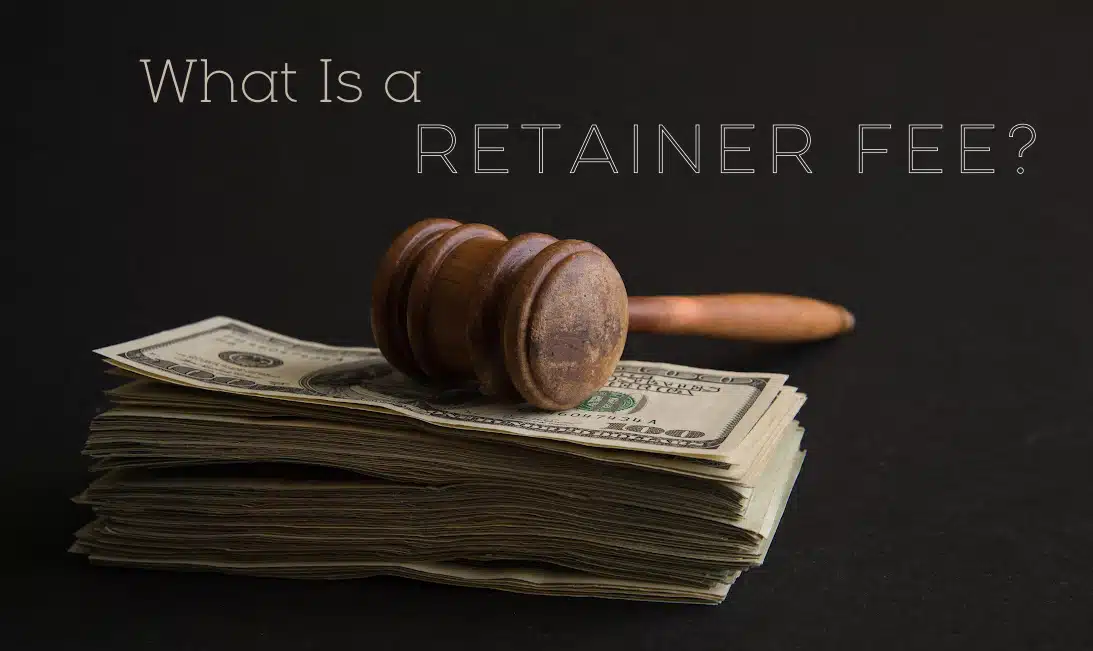Retainer Fees for Lawyers

Hiring a lawyer can be a complex process, and one aspect that often confuses clients is the concept of retainer fees. Retainer fees are a common payment structure in the legal profession, but what exactly do they entail, and how do they work?
In this blog, we’ll break down retainer fees, explain their purpose, and help you understand how they fit into the cost of legal representation.
What Is a Retainer Fee?
A retainer fee is an upfront payment made to a lawyer to secure their services. It acts as a deposit and is often used to ensure the lawyer is available to work on your case. The retainer fee can be applied toward the lawyer’s hourly rate, specific services, or ongoing legal representation, depending on the terms of the agreement.
How Do Retainer Fees Work?
When you pay a retainer fee, the lawyer typically places the money in a trust account. The lawyer then deducts fees for work completed or expenses incurred as the case progresses. Here’s how the process generally works:
- Initial Payment: You pay the agreed-upon retainer amount to the lawyer.
- Deduction of Fees: The lawyer tracks their time and expenses and deducts these amounts from the retainer as the work is performed.
- Replenishment (if necessary): If the retainer is exhausted before the case concludes, the lawyer may request additional payments.
- Unused Funds: Any unused portion of the retainer is usually refunded to the client at the end of the case.
Types of Retainer Fees
Retainer fees can vary depending on the lawyer’s practice area and the nature of the case. Common types of retainers include:
General Retainer
- Secures the lawyer’s availability for a specific period.
- The payment is for the lawyer’s commitment, not tied to specific work performed.
Advance Fee Retainer
- Acts as a deposit for legal services.
- Funds are applied to hourly rates or other agreed-upon fees.
Security Retainer
- Funds remain in a trust account and are only used as work is completed.
- Unused funds are returned to the client.
Special Retainer
- Covers a specific legal task or service, such as drafting a contract or handling a real estate transaction.
Why Do Lawyers Use Retainer Fees?
Retainer fees serve several purposes:
- Securing Availability: The lawyer commits to prioritizing your case.
- Covering Initial Work: Allows the lawyer to begin work on the case without delay.
- Establishing Financial Commitment: Ensures both parties are invested in the legal process.
Are Retainer Fees Refundable?
Whether a retainer fee is refundable depends on the type of retainer and the terms of your agreement:
- Non-Refundable Retainers: Some general retainers are non-refundable because they pay for the lawyer’s availability.
- Refundable Retainers: Most advance or security retainers are refundable if not fully used for legal services.
Always review your retainer agreement carefully to understand the terms.
How Much Is a Typical Retainer Fee?
The cost of a retainer fee varies widely based on factors like:
- Practice Area: Lawyers in specialized fields like patent law or criminal defense may charge higher retainers.
- Geographic Location: Lawyers in metropolitan areas often charge more than those in smaller cities.
- Complexity of the Case: A more complex case may require a larger retainer.
Retainer fees can range from a few hundred dollars for simple cases to tens of thousands of dollars for complex legal matters.
Questions to Ask About Retainer Fees
Before signing a retainer agreement, consider asking these questions:
- What services are included in the retainer?
- How will the funds be applied and tracked?
- What happens if the retainer is exhausted?
- Is the retainer refundable?
- Are there additional costs beyond the retainer?
Alternatives to Retainer Fees
Not all legal matters require a retainer fee. Depending on your case, you might encounter other payment structures, such as:
- Flat Fees: A one-time payment for specific services, such as drafting a will or handling an uncontested divorce.
- Contingency Fees: The lawyer only gets paid if you win your case (common in personal injury cases).
- Hourly Billing: You pay for the time the lawyer spends working on your case, often without a retainer.
Conclusion
Retainer fees are a standard part of hiring a lawyer, offering a flexible way to secure legal representation. Understanding how retainer fees work and what they cover can help you make informed decisions when choosing a lawyer. Always review your retainer agreement thoroughly and ask questions to ensure you understand the terms.
If you’re looking for legal representation and want to learn more about retainer fees, reach out to a qualified attorney who can guide you through the process.

Related Items:





